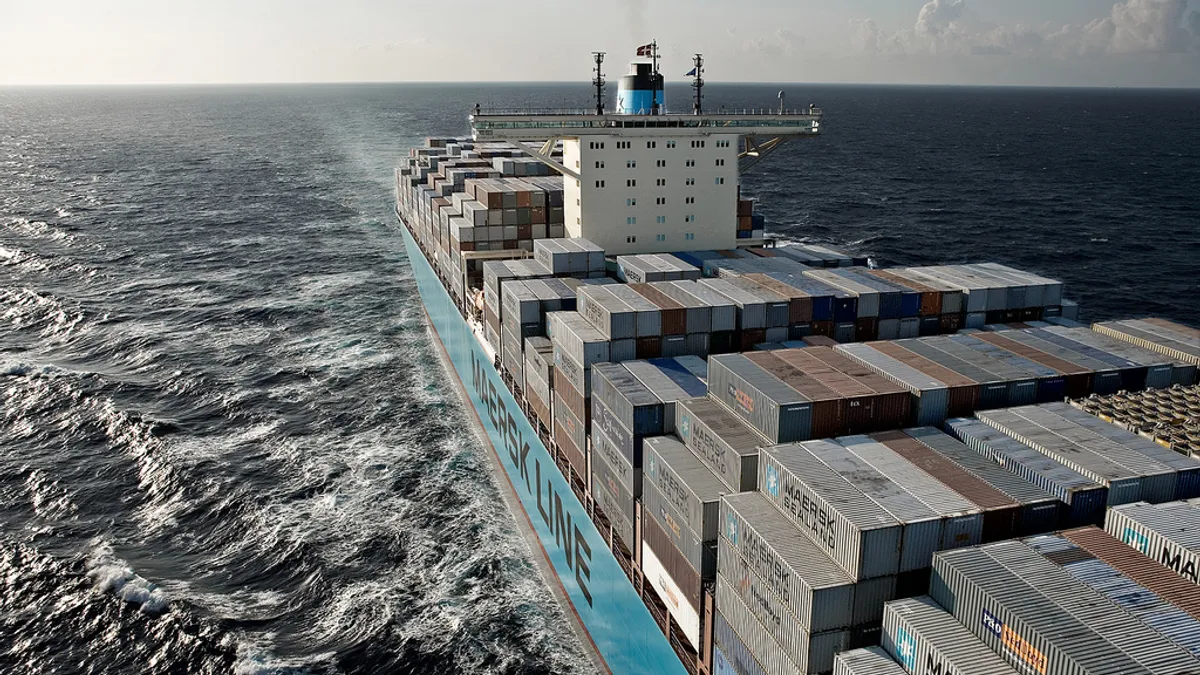Dive Brief:
- High rates of unemployment in Europe, along with speculation regarding the effects of Brexit have reduced European economic confidence, a Xeneta press release reported Tuesday. As a result, spending is minimal, and carriers are reducing the number of callings at European ports.
- Maersk has felt the effects of the European downturn, with 10% decreased capacity on its Asia-Europe routes. Both the CKYH and G6 alliances have also cut their Asia-Europe runs, dropping from eleven weekly calls to just nine. Such is the need to pinch pennies even vessel speeds are slower.
- Accordingly, short-term rates for a 40 ft. container going from Asia to Europe fell 10% from $1,880 to $1,633 between mid-July 2017 to the end of September 2017. Meanwhile, in the U.S., short-term rates rose from USD 1430 to USD 1611, or 13%.
Dive Insight:
The state of the shipping industry continues to ebb and flow, with rate rises and route reductions always on the horizon.
Maersk Line was quick to claim an industry recovery back in May, but the economics to support it have yet to follow. Rates remain volatile despite shipper optimism, and lines continue to incur debt through new orders for even larger vessels. Some self-correction took place early in the year, such as mergers and scrapping, but its effect remains unknown.
Xeneta's analysis of a gap between European and U.S. freight demands puts a fresh strain on the industry, as carriers contend to fill ships and simultaneously decrease calls. The effect decreased calls has on shippers is far-reaching, according to experts. "There are international corporations that have trades on both the Asia-Europe and the trans-Pacific (amongst loads of others)," Xeneta CEO Patrik Berglund told Supply Chain Dive.
And, although conditions have certainly improved since 2015, predictable highs and lows must be endured. "The market is substantially healthier for the carriers than 18 months ago even with the recent rate declines," Berglund continued, though he cautions against industry over-confidence. "There is definitely a potential for an even more economically sound market for the carriers (and expensive for shippers/BCOs) as long as they don’t ruin the market for themselves."














